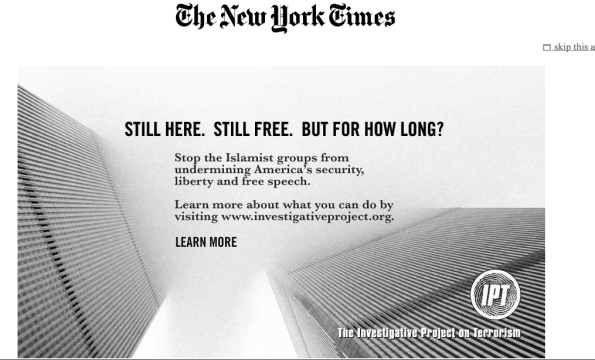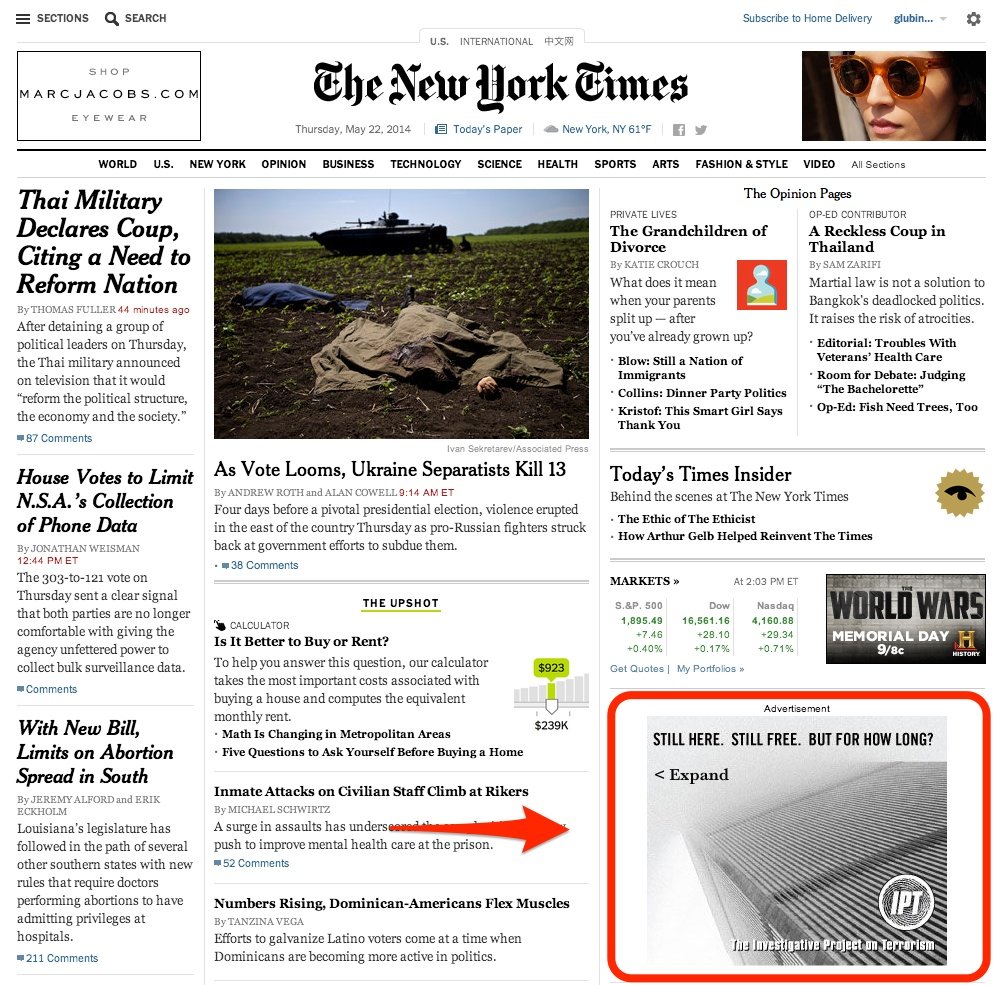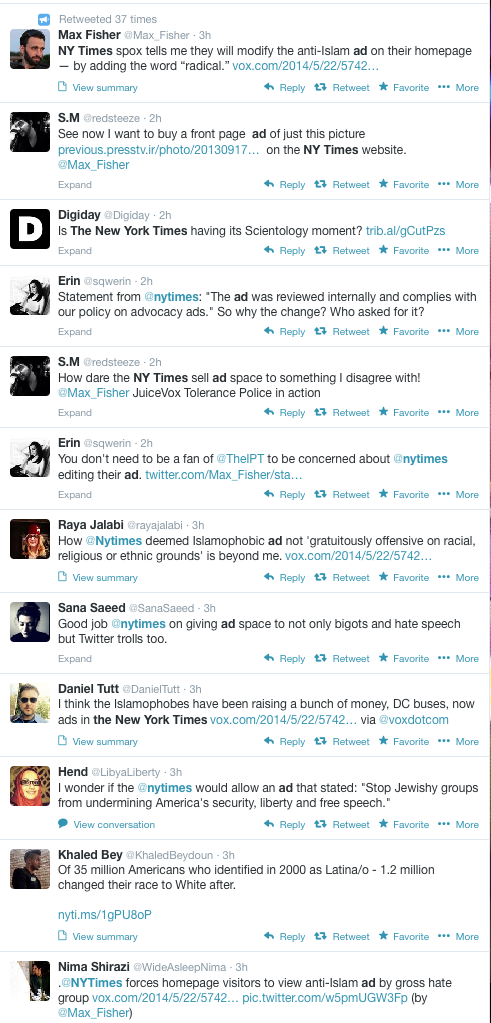
New York Times Runs Site Takeover & Print Ad by Group Concerned about Radical Muslim Terrorism
- By WRN Editorial Staff --
- 22 May 2014 --

An unprecedented full page NYTimes.com takeover ad ran today sponsored by “The Investigative Project on Terrorism“
A www.NYTimes.com homepage takeover ad from an advertiser called “The Investigative Project on Terrorism,” who describe themselves as a non-profit research group and investigator of Islamic extremism, ran today prompting a flurry of social media and blog responses.
The takeover ad used a black & white Twin Towers image behind the words “Still here. Still Free. But for how long?”
Once the takeover ad is present for several seconds, the browser moves to the actual NyTimes.com homepage if the visitor didn’t click on the ad link. The NYTimes.com homepage w/2nd ad, below:

The takeover ad clicks through to a page with the headline “Call to Action by the American People” that suggests that groups such as the Council on American Islamic Relations are “bullying” the media outlets, law enforcement and even the Obama Administration to prevent them from openly discussing Islamic terrorism.
IPT’s founder, Steven Emerson, has been referred to as an expert on intelligence and terrorism but also accused of igniting anti-Arab and anti-Palestinian sentiment. IPT has protested the NY Times in the past, recently, it called the Times out for what it called a “hysterical” front-page story about the police abusing the civil rights of Muslims.
IPT also purchased a full-page display ad in Wednesday’s print edition of The New York Times. The all-text ad opened by “commemorating today’s official opening of the National September 11 Memorial Museum.” It went on to warn at great length that mainstream Muslim-American groups such as the Council on American-Islamic Relations were in fact part of a clandestine “radical Islamist” vanguard of a “holy war” that supports terrorism and wishes to continue the efforts of the September 11 attacks. “This is the new form of the jihadist threat we face,” the ad reads.
The Times normally accepts and publishes advertisements on a variety of controversial topics, according to communication director Daniel Rhoades-Ha…
“This is the online version of an ad that ran on page A17 in yesterday’s paper. The ad was reviewed internally and complies with our policy on advocacy ads.”
“However upon reexamination, we think the phrase ‘radical Islamists’ would have been better than ‘Islamists’ in this advertisement. The advertiser agreed to the change, and the ad has been updated.”
The ad has resulted in many social media reactions including:

An excerpt of the NYTimes.com advertising policy follows:
Advertising Acceptability Policy for Selected Categories
Advocacy Advertising / Opinion Advertising
We believe that the broad principles of freedom of the press confer on us an obligation to keep our advertising columns open to all points of view. Therefore, The New York Times accepts advertisements in which groups or individuals comment on public or controversial issues. We make no judgments on an advertiser’s arguments, factual assertions or conclusions. We accept advocacy/opinion advertisements regardless of our editorial position on any given subject.
We do not, however, accept advocacy advertisements that are attacks of a personal nature, that seek to comment on private disputes or that contain vulgar or indecent language.
We do not accept advertisements that are gratuitously offensive on racial, religious or ethnic grounds or that are considered to be in poor taste. We do not verify, nor do we vouch for, statements of purported fact in advocacy/opinion advertisements. We reserve the right, however, to require documentation of factual claims when it is deemed necessary.




















